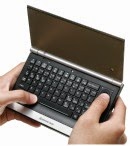Whether accidentally dropped in a sink, toilet or a swimming pool; soaked by a rainstorm or a beverage; sent through a washing machine or victimized by a water gun- this is how a over million smartphones are water-damaged each year.
Touch screens , apps, web access and voice recognition are same of the reasons smartphone sales are through the roof every year.But Buyer beware, the device are not waterproof- not even close.
Water in electronic gadgets is catastrophic.Warranties rarely cover the damage and new contracts are usually required.You lose your information, contacts, apps, and photos.Not fun.
But we may soon have waterproof phones because of a new technology that uses nanotec coatings.
Two companies leading the research and development into this technology are HzO and Liquipel.
HzO won the CES 2012 Innovations, Design and Engineering Award for its nano coating technology while while liquipel received a 2012 Edison award in material science for its nano coating technology.
Both companies use a vapor deposition process to coat electronic devices with a very thin film.This film is hydrophobic, which means that it repels water , humidity, perspiration, coffee, wine, soda and even acid.
The coating does not trap heat, is virtually weightless,invisible and non toxic,which makes it great for protecting electronic devices.
Touch screens , apps, web access and voice recognition are same of the reasons smartphone sales are through the roof every year.But Buyer beware, the device are not waterproof- not even close.
Water in electronic gadgets is catastrophic.Warranties rarely cover the damage and new contracts are usually required.You lose your information, contacts, apps, and photos.Not fun.
But we may soon have waterproof phones because of a new technology that uses nanotec coatings.
Two companies leading the research and development into this technology are HzO and Liquipel.
HzO won the CES 2012 Innovations, Design and Engineering Award for its nano coating technology while while liquipel received a 2012 Edison award in material science for its nano coating technology.
Both companies use a vapor deposition process to coat electronic devices with a very thin film.This film is hydrophobic, which means that it repels water , humidity, perspiration, coffee, wine, soda and even acid.
The coating does not trap heat, is virtually weightless,invisible and non toxic,which makes it great for protecting electronic devices.
How It Works:
A device is placed with in a vacuum chamber.A vacuum chamber is created and a specially formulated vapor is introduced in a chamber.
This vapor seeps into the electronic components of devices depositing a uniform layer of molecules that repel water.
These coating are not meant to protect smartphones during deep sea dives or for any extended underwater use.
They will protect devices against damage caused by accidental immersions even if the device has been left submerged in water for a few hours.
Though HzO and Liquipel both use vapor deposition for application, their respective coatings and applications are different from one another.
Both HzO and Liquipel provide their services to manufacturers but Liquipel will also provide directly to consumers.



































